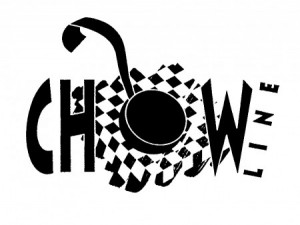Every year at Thanksgiving, my cousin claims that turkey makes you sleepy. But I thought that myth had been debunked years ago. What’s the story?
Well, don’t be too hard on your cousin. The notion that eating turkey will make you sleepy has been around for a long time. And if you look at your family members after Thanksgiving dinner, it’s likely you will see evidence that it’s true. But it’s not.
The myth started because turkey contains tryptophan. With the help of iron, riboflavin and vitamin B6, the body can convert tryptophan into niacin, also known as vitamin B3. But more to the point, the body can also use tryptophan to make serotonin, a brain chemical that helps make melatonin, a hormone that can control your sleep/wake cycles. Since turkey provides tryptophan, which makes serotonin, which makes melatonin — it makes some sense to blame the turkey when you feel sleepy after Thanksgiving dinner.
The thing is, turkey doesn’t contain a large amount of tryptophan. Pork and cheddar cheese contain even more, and no one complains that they put you to sleep. Other foods that contain tryptophan include eggs, fish, milk, nuts, peanuts, peanut butter, pumpkin seeds, soy and tofu.
Also, when you eat turkey or any other protein-rich food, tryptophan has to compete with other amino acids to get to the brain. For a person to become drowsy from tryptophan, it needs to be taken in higher doses and on an empty stomach.
Still, it’s likely that after dinner on Turkey Day, you may see some family members nodding off in front of the television. If it’s not the tryptophan, what’s going on?
Most scientists believe that the drowsiness is caused by the heavy portions of carbohydrates in the typical Thanksgiving meal: mashed potatoes, sweet potatoes, stuffing, rolls, cranberry sauce — and pumpkin pie to top it off. Those food items alone provide more carbohydrates — and calories — than most people eat in an average day. That kind of over-indulgence diverts the body’s blood supply to the digestive system and away from the brain and other parts of the body, and that’s what makes you feel sleepy.
If you need further proof for your cousin to believe you, check out a two-minute animated video produced last year by the National Science Foundation and the American Chemical Society. It explains the myth and why scientists don’t believe it. It’s online at go.usa.gov/WsDH.
Chow Line is a service of Ohio State University’s College of Food, Agricultural, and Environmental Sciences and its outreach and research arms, Ohio State University Extension and the Ohio Agricultural Research and Development Center. Send questions to Chow Line, c/o Martha Filipic, 2021 Coffey Road, Columbus, OH, 43210-1043, or filipic.3@osu.edu.
Editor: This column is being delivered early this week because of the Thanksgiving holiday. It was reviewed by Irene Hatsu, food security specialist for Ohio State University Extension, the outreach arm of Ohio State’s College of Food, Agricultural, and Environmental Sciences.
For a PDF of this column, please click here.
Irene Hatsu
OSU Extension, Food Security

